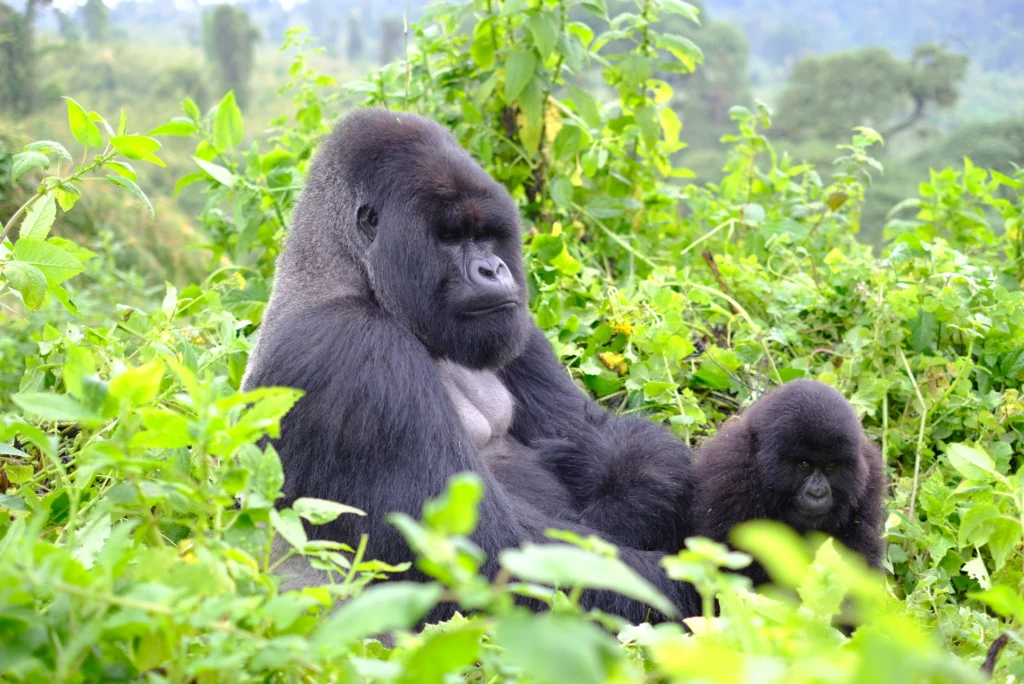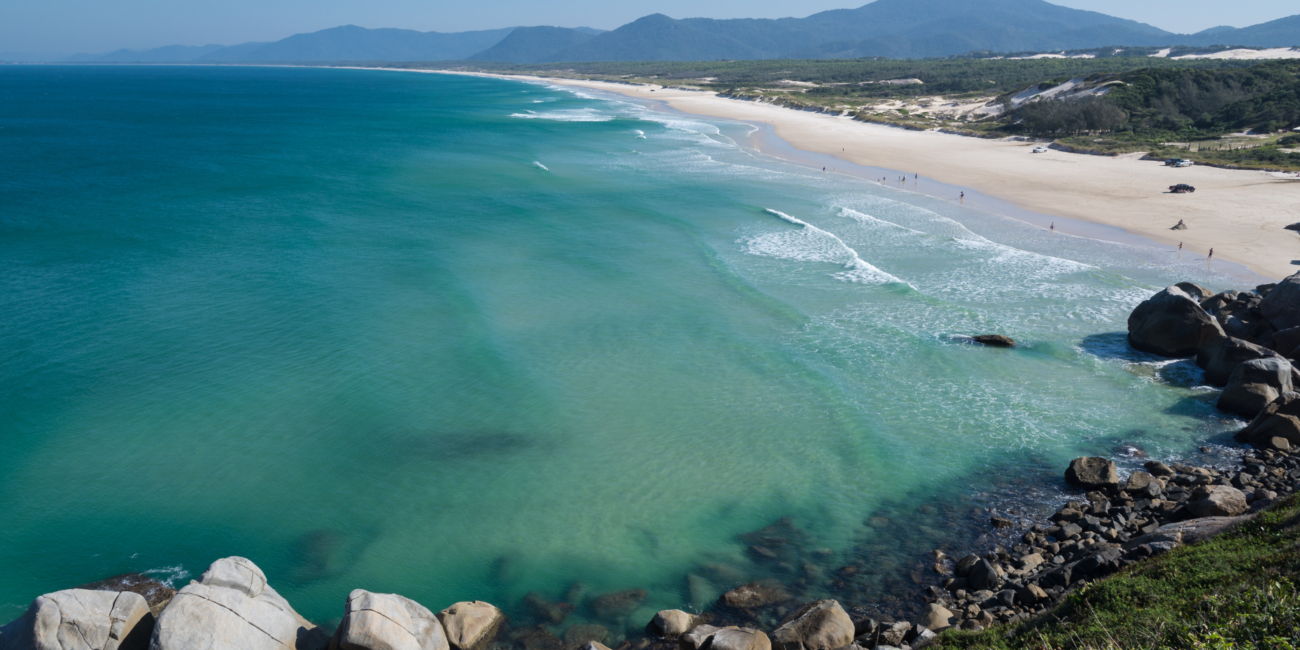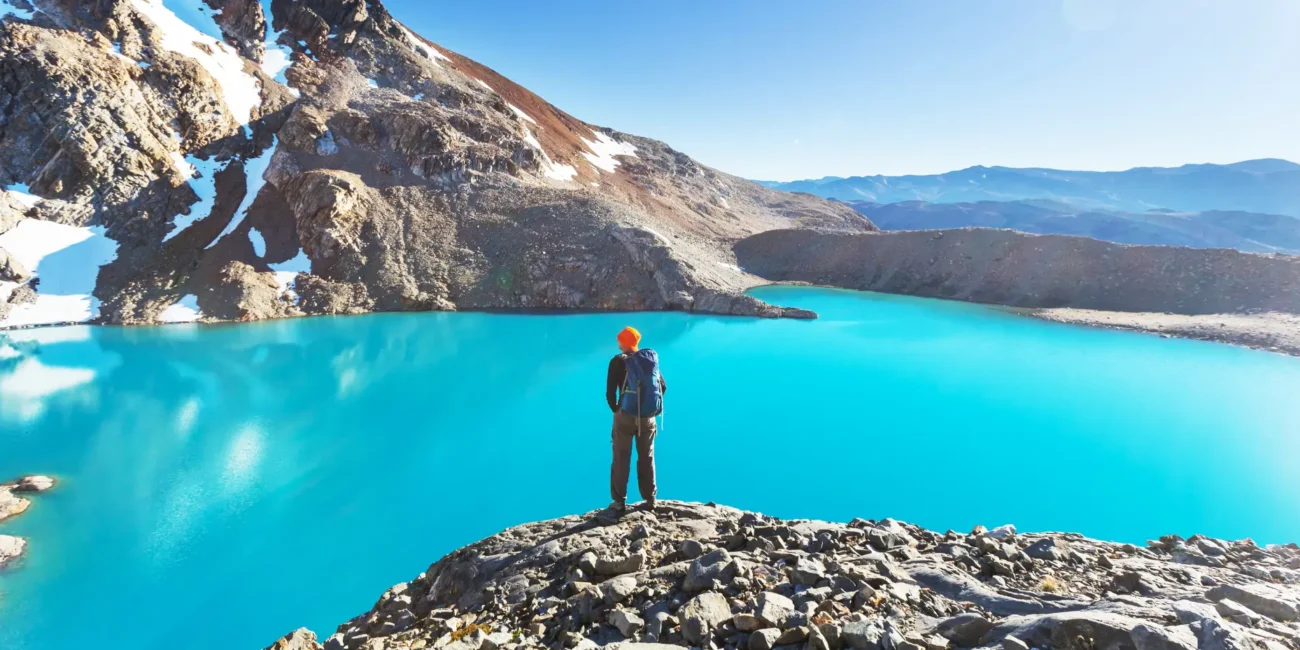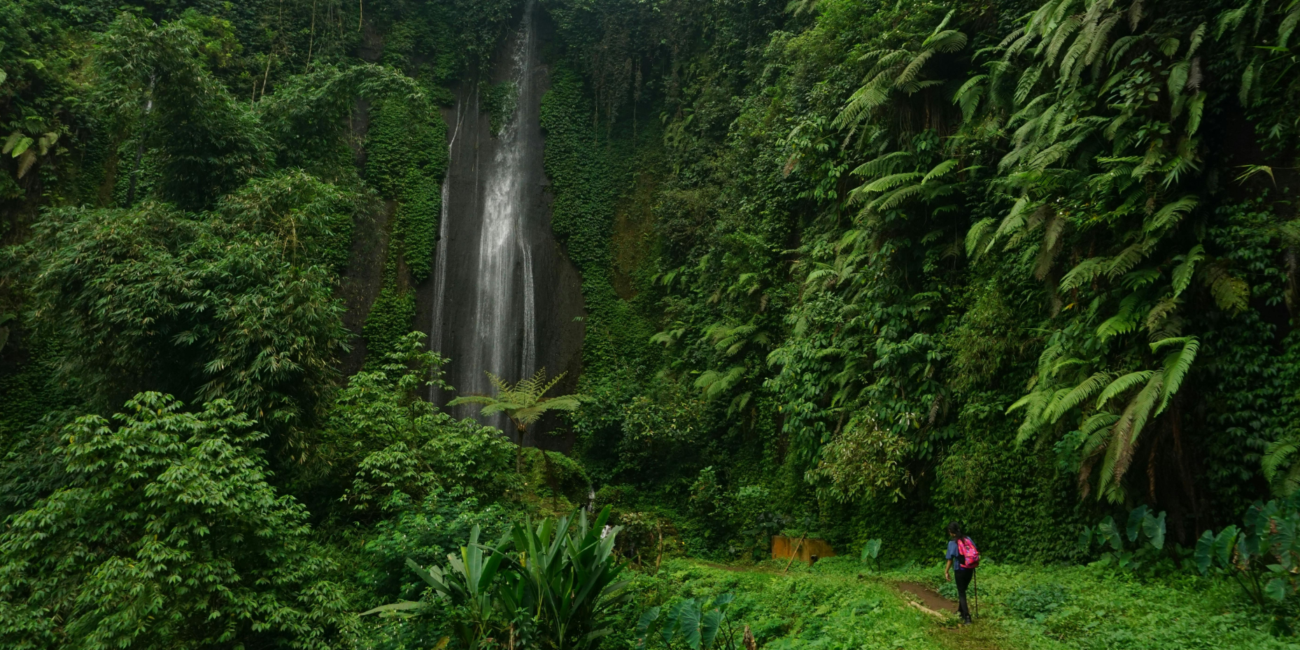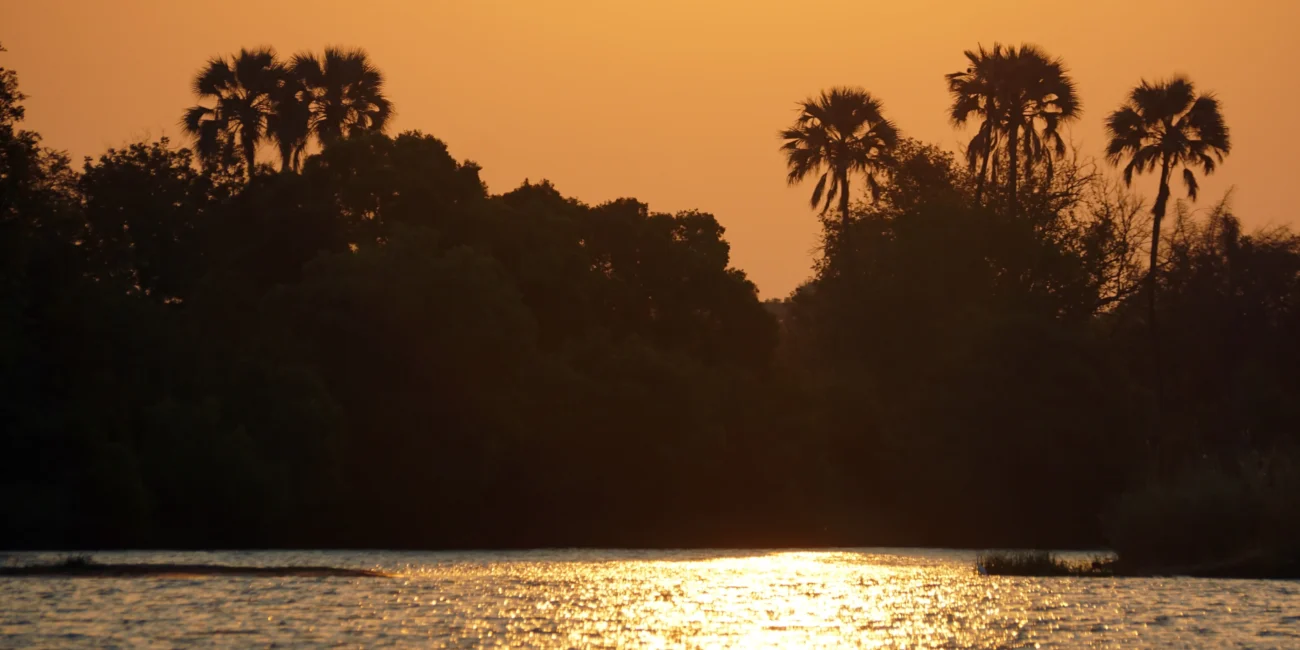Few places stir the soul like Rwanda. Here, deep in the heart of Africa, morning mist curls through ancient volcanoes and golden light spills across sprawling savannahs. But in addition to its unique blend of natural splendour and cultural richness, this country has an astounding dedication to conservation and sustainability.
Conservation in Rwanda is multifaceted, shaped by science, local communities and a deeply rooted respect for the wild. Whether supporting gorilla monitoring efforts or helping fund anti-poaching patrols through low-impact trekking, travelling here means stepping into that story and becoming part of its future.
Gorilla Conservation in Rwanda
Gorilla conservation in Rwanda is one of the most extraordinary conservation stories of our time. Just decades ago, mountain gorillas teetered on the edge of extinction. Poaching, habitat destruction and human encroachment reduced their numbers to perilously low levels. Yet today, against the odds, they are Rwanda’s greatest conservation success.
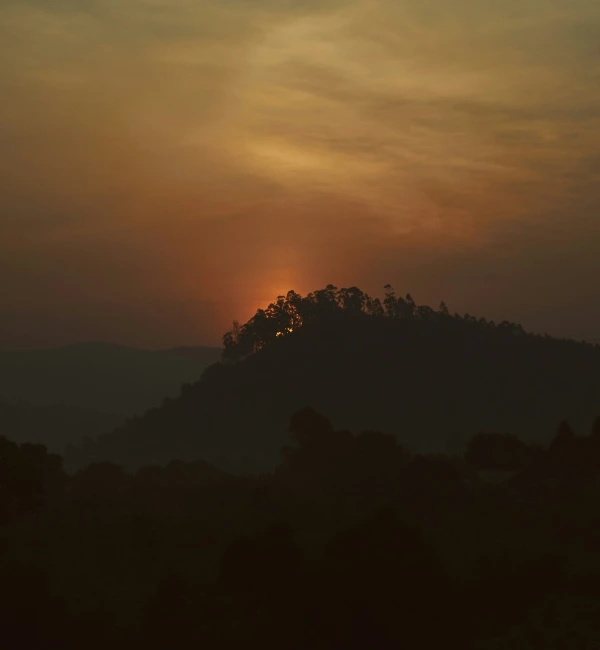
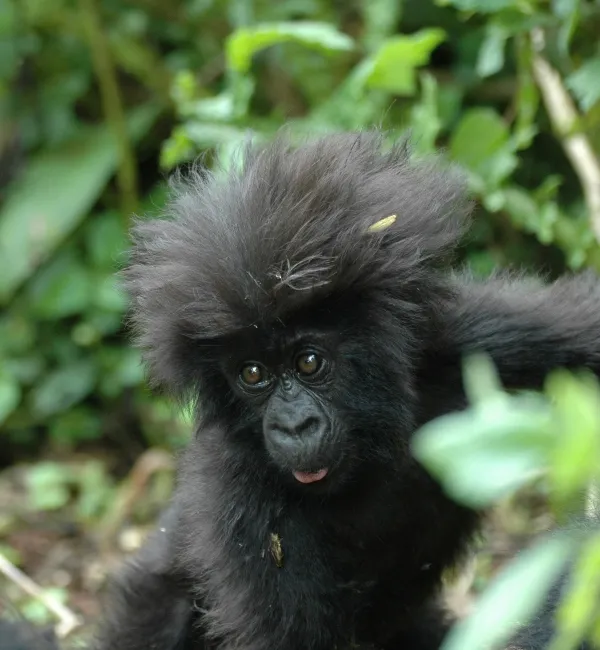
Where Gorilla Conservation Began
In 1925, Rwanda established Volcanoes National Park to protect these rare primates. But real momentum began with the work of Dian Fossey in the 1960s. Her field research, conducted on the mist-wreathed slopes of the Virunga Mountains, sparked international awareness and fierce protection. Her legacy gave voice to the gorillas and purpose to a movement.
Following global outcry over the poaching of several silverback gorillas, Rwanda’s President Habyarimana called on Africa’s leading conservation NGOs to act. The result was the Mountain Gorilla Project, which focused on capacity-building, anti-poaching and boosting awareness.
From Endangered to Emerging
Over time, the project evolved under Rwandan leadership, stabilising gorilla populations and improving the way local communities engaged with conservation. Gorilla trekking, once an experimental activity, has become a cornerstone of Rwanda’s conservation economy. Visitors from around the world now come to see these gentle giants in their natural habitat, knowing their presence directly funds research, habitat protection and local livelihoods.
Today, the government of Rwanda continues to lead with a bold vision. Plans are underway to expand Volcanoes National Park by 37.4 square kilometres, a 23% increase that reflects both the rising number of gorillas and a national commitment to coexistence between communities and wildlife.
Every conservation-focused journey to Rwanda contributes to this story. Trekking through ancient bamboo forests, you step into a living narrative shaped by resilience, research and the power of purpose.
Environmental Conservation in Rwanda
Rwanda’s dedication to environmental stewardship goes hand in hand with its broader vision of sustainable development and economic prosperity. From reforesting degraded hillsides to generating clean energy for off-grid communities, these projects rebuild ecosystems and support livelihoods and resilience in the face of a changing climate.
A Culture of Collective Stewardship
On the last Saturday of every month, something remarkable happens. Across the country, Rwandans put down their phones, roll up their sleeves and take part in the ‘Umuganda project’, a mandatory nationwide day of community service. From planting trees to building infrastructure and rehabilitating public spaces, this deeply embedded tradition nurtures a shared responsibility for environmental health and civic pride, embodying what conservation efforts in Africa can look like when rooted in unity.
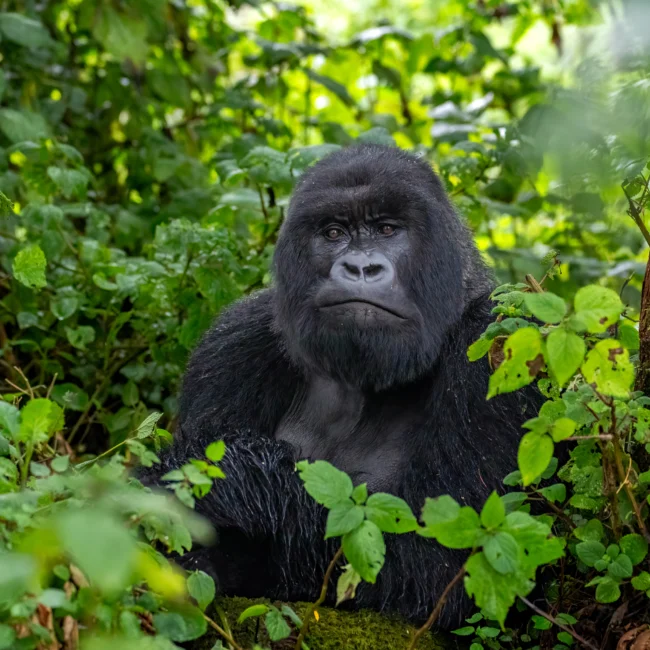
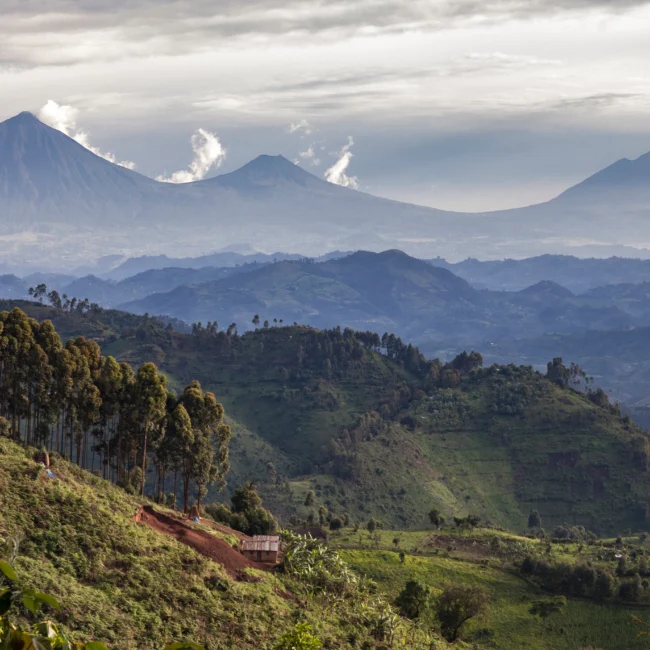
Restoring What Was Lost
At the forefront of Rwanda’s environmental conservation strategy is an ambitious pledge: restore 2 million hectares of deforested and degraded land by 2030. As part of the Bonn Challenge, this commitment is taking shape through initiatives like the Green Gicumbi Project in northern Rwanda, where hillsides once stripped bare now bloom with native trees and terraced fields. These efforts between the government, local communities, international organisations and NGOs help sequester carbon and improve soil fertility, water quality and biodiversity.
Renewable Energy for a Greener Tomorrow
In the eastern reaches of the country, vast rows of solar panels glint under the equatorial sun. This is the Gigawatt Global Solar Field, one of East Africa’s largest solar power plants. It powers thousands of homes, displaces carbon emissions and symbolises Rwanda’s clean energy ambitions. With a target of 100% national electrification by 2030 and over half of its energy sourced from renewable sources, the country is scaling up hydro, methane and solar projects to reduce its reliance on fossil fuels and promote sustainable development.
A National Strategy with Global Significance
Environmental conservation in Rwanda is a deeply strategic endeavour. The National Strategy for Climate Change and Low Carbon Development outlines Rwanda’s plan to reduce its emissions by 38% relative to business-as-usual levels by 2030. This target translates to approximately 4.6 million tonnes of CO₂ equivalent avoided each year—an extraordinary target for one of the smallest nations on the continent.
From reforestation to renewables, Rwanda’s holistic approach to conservation places it at the forefront of environmental leadership in Africa. These efforts offer a model for the world.
How Journeys With Purpose Supports Conservation in Rwanda
Rwanda’s conservation story is one of hope, resilience and bold ambition. When you travel here with Journeys With Purpose, you become a part of that change.
Our private and hosted journeys to Rwanda connect you directly with the people protecting gorillas, restoring ecosystems and reimagining how tourism can support both nature and community. By travelling with purpose, you help fund vital conservation efforts in Africa that will shape the future for generations to come.
This is travel that leaves a legacy.
Interested in Exploring Rwanda’s Wild Places?
Journeys With Purpose offers private, conservation-focused adventures to Rwanda, with tailor-made itineraries built around your passions. We also plan hosted journeys – get in touch with our expert travel specialists today on +44 20 8044 9538 or at connect@journeyswithpurpose.org.
DIG A LITTLE DEEPER
Contribute to Positive Impact on a Hosted Journey.
Connect with Impact Partners around the world during a Private Experience.

